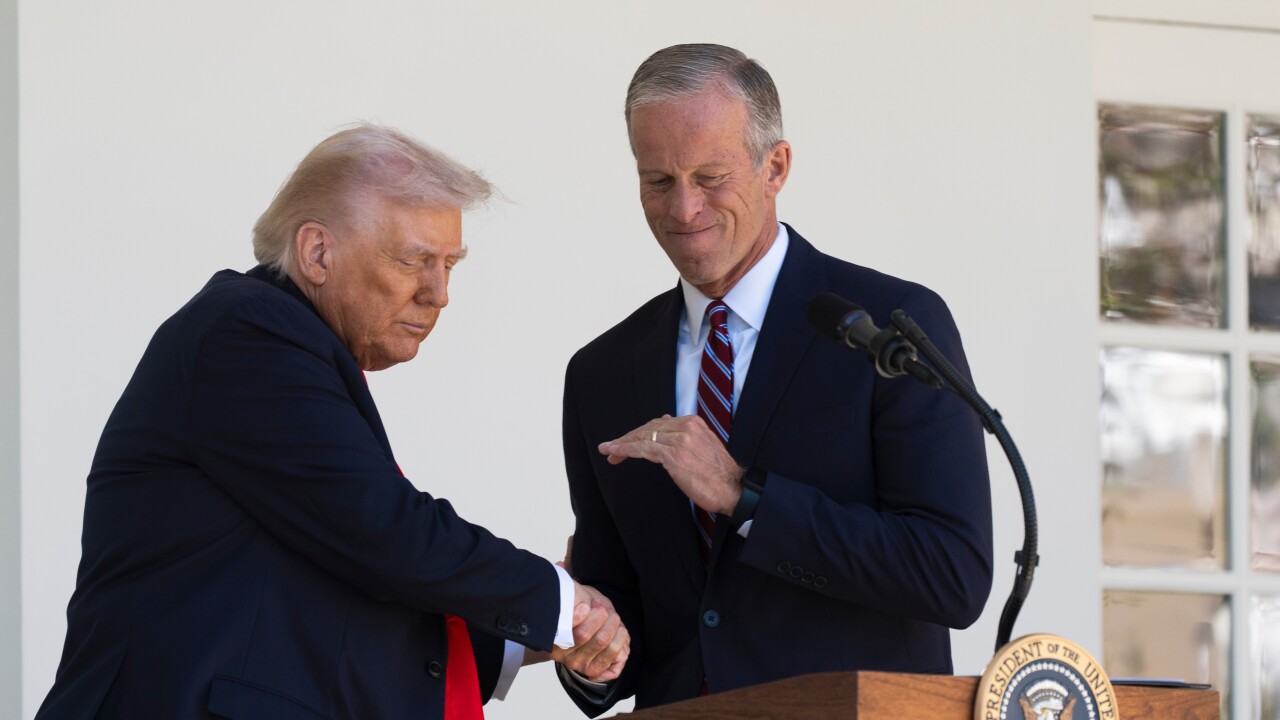Senate Majority Leader John Thune (R-SD) on Friday called a Democrat proposal to reopen the government a "non-starter," setting up continued gridlock on Capitol Hill as the government shutdown approaches 39 days long.
Senate Democrats on Friday unveiled a new proposal to reopen the government that would have passed a clean short-term funding bill while negotiations continue on a bipartisan spending package.
It called for extending existing Affordable Care Act tax credits for one year to prevent major increases in health insurance costs next year, and would have established a bipartisan committee to pursue longer-term reforms aimed at reducing health care costs.
But Leader Thune said seeking any agreement on health care would be premature.
"That’s what we’re going to negotiate once the government opens up," he said.
After the Democrats' proposal fizzled, there were few signs of obvious progress.
“We’re back to square one,” said Sen. John Kennedy (R-LA).
The Senate will remain in session over the weekend while negotiations continue.
President Donald Trump has urged the chamber to continue negotiations “until they have a Deal to end the Democrat Shutdown.”
Pressure to end the shutdown is mounting. Millions of Americans could soon see interruptions in SNAP food assistance, and major airports are reporting delays as unpaid TSA officers and air traffic controllers call out sick at higher rates.
PREVIOUS REPORTING | Government shutdown is now longest on record as it enters day 36
Filibuster debate complicates shutdown resolution
Trump has renewed calls to eliminate the Senate filibuster, which requires 60 votes to pass most legislation. Removing this threshold would allow Republicans to pass government funding with a simple 51-vote majority.
However, several Republican senators oppose changing the filibuster rules.
"I don't want to change the filibuster rule simply because every time parties change and you have different presidents in different parties, you'll have wild swings in policy and it'd be very disruptive to the country," Senator Lindsey Graham said.
Republicans worry that eliminating the filibuster could allow Democrats to restore Roe v. Wade, admit Washington D.C. and Puerto Rico as states, and potentially add four Democratic senators to the chamber.
Democrats previously attempted to remove the filibuster during Joe Biden's presidency to restore abortion rights but were blocked by then-Democratic moderates Kyrsten Sinema and Joe Manchin, both of whom have since retired.
Thune has stated Republicans lack the votes to change the filibuster rule, despite continued pressure from Trump.












